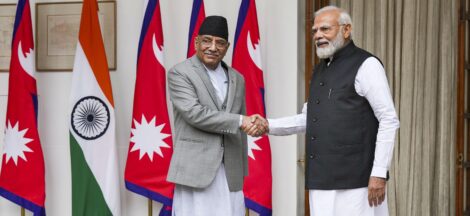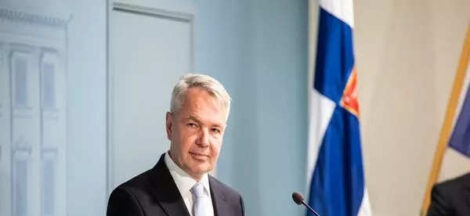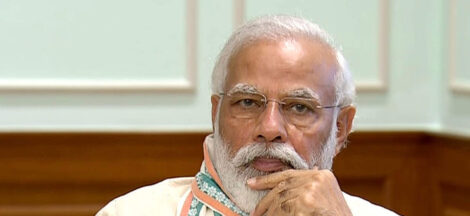By
K R Sudhaman
With tourism expected to create 50
million jobs in India by 2028, artificial intelligence and blockchain
technology can play a critical role in promoting this ever growing industry
particularly with more and more travellers seeking personalized services.
“We are now at the cusp of time when
artificial intelligence (AI) and blockchain technology will be playing a big
role in India. Now AI in travel and tourism is being used to predict travel
choices, personalize services, complete bookings and manage pre-trip and
post-trip needs, according to Saurabh Sharma, founder and director, Travel
Unravel Holiday
Few of the trends that are picking
fast in India are: airlines deploying AI to deal with social media inquiries,
hotel operators, altering their dinner menu after AI analyzed guest reviews and
so on. Also the luggage management has
been eased with the introduction of blockchain technology, while streamlining
the entire process with seamless flow, he said.
Travel requires repeated scrutiny of
travel documents by different sets of people. There are complex embarkation and
disembarkation processes. Facial recognition technology promises to bring an
end to these tiresome paper-bound processes.
With facial recognition, travellers
can seamlessly move through airports, immigration, customs and board aircraft
without the need for having travel documents scrutinized at each step. Plus,
the digital interactions that are conversational and voice-based assistants
that are personal are few of the future trends that industry is looking up to
for incorporation, Sharma said.
With the introduction of these
technologies now travellers can plan where they want to go, compare options,
weigh budgets and make bookings and cancellations through conversational apps
that reduce the amount of interaction otherwise needed.
The industry estimated that by this year-end,
12% to 15% of all new jobs in travel and tourism in India could be created by
transitioning to a seamless passenger journey and the use of technology and
biometrics solutions, in addition to infrastructure investment.
This included making existing terminal
facilities and processes more efficient, streamlined, more secure and seamless.
Travel and tourism industry will contribute to 25% of the global job creation
while, industry estimates, India alone will add around 10 million jobs in the
travel and tourism sector by 2028.
Personalization is the key to
promoting tourism as 57% of travellers feel that brands should tailor their
information based on personal preferences or past behaviours. If a travel brand
does the same, 36% of the consumers are likely to pay more for these customised
services. This is an area were artificial intelligence and blockchain can come
in handy.
Spotting the trend of personalised
experiences, Insight Vacations, a global leader in premium guided vacations is
coming out with packages that make travel a luxury and memorable. There are
however challenges, said Anthony Lim, the Asian Managing Director of Insight
Vacations and Luxury Gold, the brands of The Travel Corporation (TTC).
Every year, ”we are adding four to
five new experiences. We always strive to innovate and come out with new
products. The testimony to our success is we have a repeat ratio of 52%
customers every year,” he told DNA Money.
Insight Vacations is new in the Indian
market; we are targeting to grow by 30 per cent in 2019. Currently, The Travel
Corporation is serving over two million customers globally per year. The focus
is on India as it being the most emerging market in Asia currently.
On the Indian trends Lim said 11% of
our groups are solo travelers. Solo travelling is increasing every year. The
winter destinations like Scandinavian countries are new favourite destinations
for Indian travellers.
Rajeev Kohli, Joint Managing Director,
Signature Tours said travel is no longer
a luxury. It is a necessity and way of life for most. People have been attuned
to travel in both good and bad times. Neither the demonetisation in 2017, nor
the switch to GST regime in 2018, saw a significant drop in travel. What could
happen is patterns of travel may change. Some may decide to go closer than
further or take shorter trips. But travel will still happen.
Travellers are increasingly more
comfortable to mobile devices for bookings. In the US, data shows that 26% of
travel searches in the fourth quarter of last year occurred on a mobile device.
In other parts of the world, it’s even higher: Travel searches conducted on a
mobile device totalled 47% in Europe; 40% in Asia; 38% in the Middle East and
Africa; and 34% in Latin America. Over 1 in 3 travelers across countries are
interested in using digital assistants to research or book travel, and they’re
already searching for everything from hotels to flights, and things to do
in-destination.
This is a major reason that artificial
intelligence and blockchain technology will play a major role in promoting
tourism in the coming years. (IPA
Service)
The post AI And Blockchain Technology Giving Big Push To Tourism appeared first on Newspack by India Press Agency.


